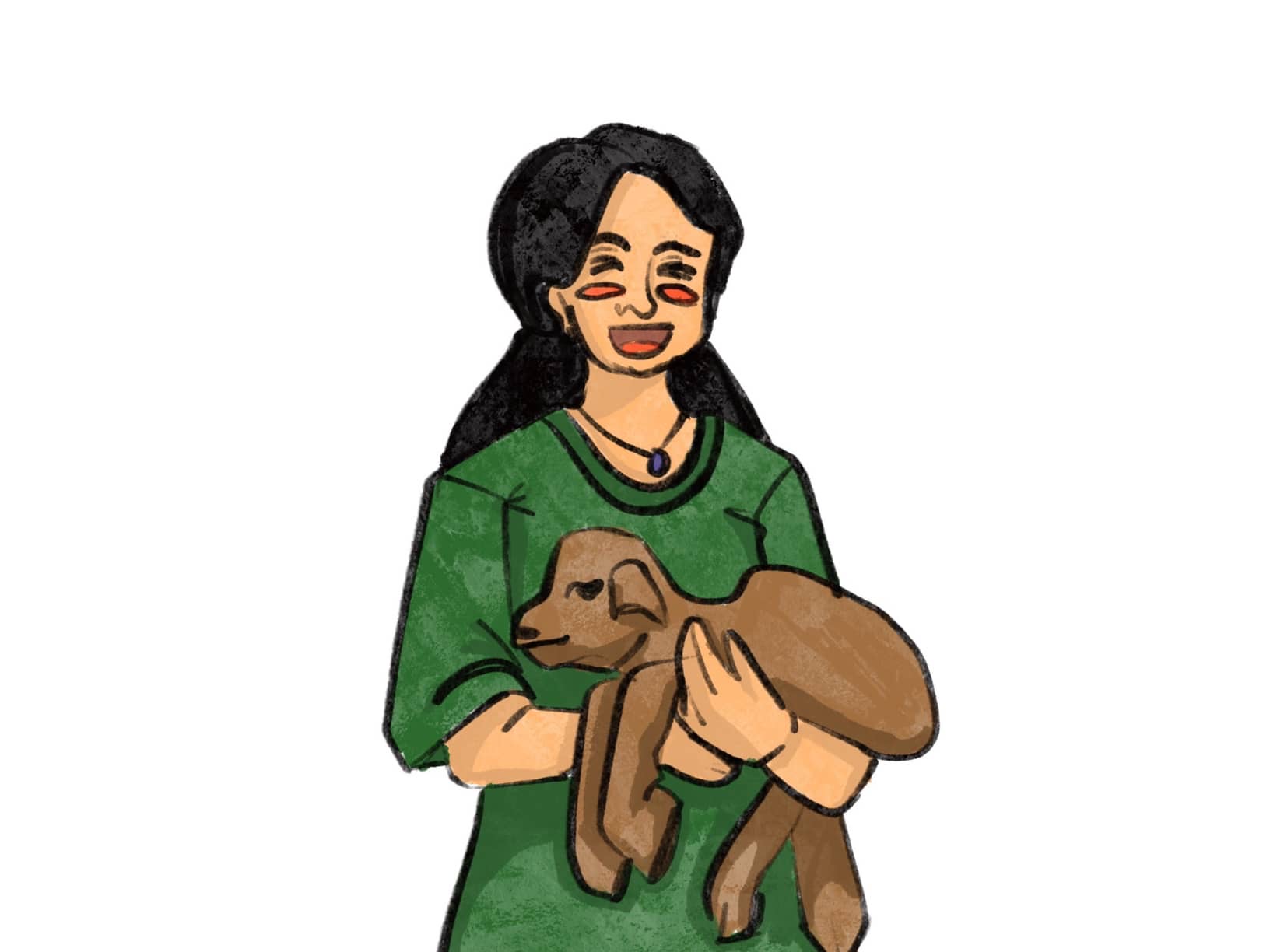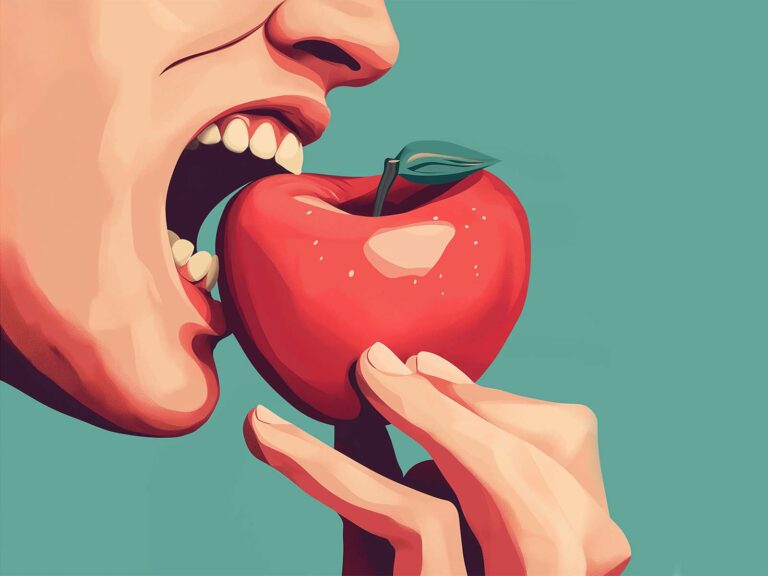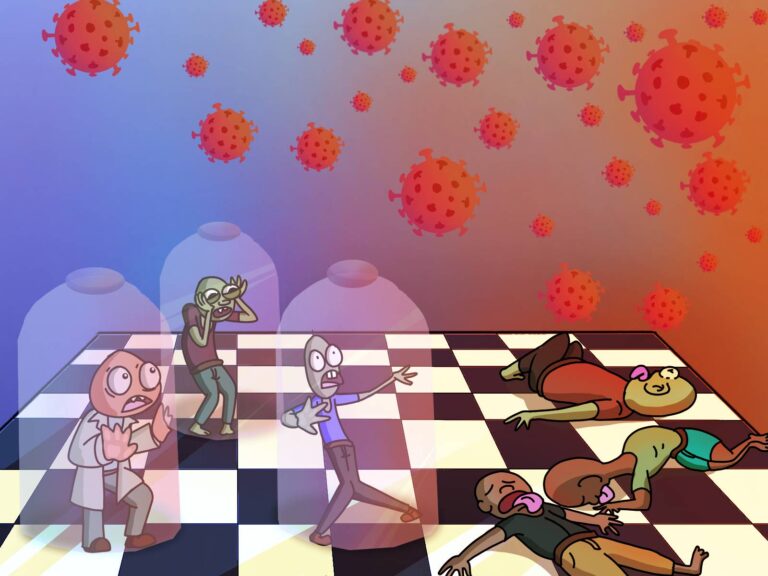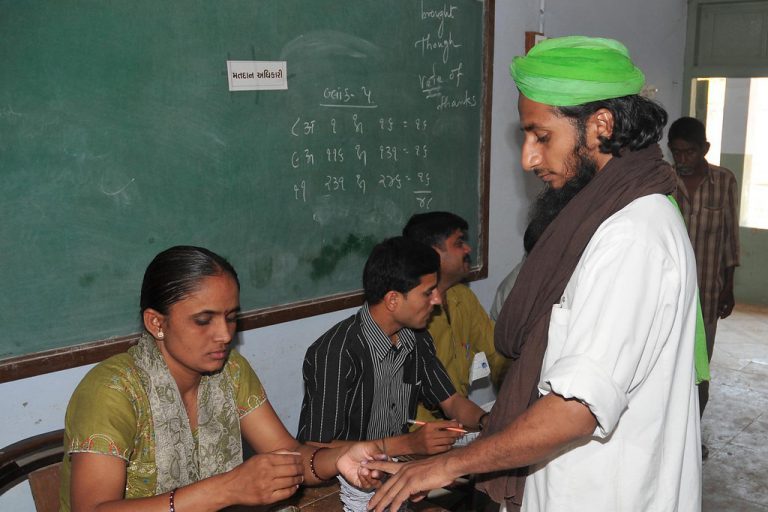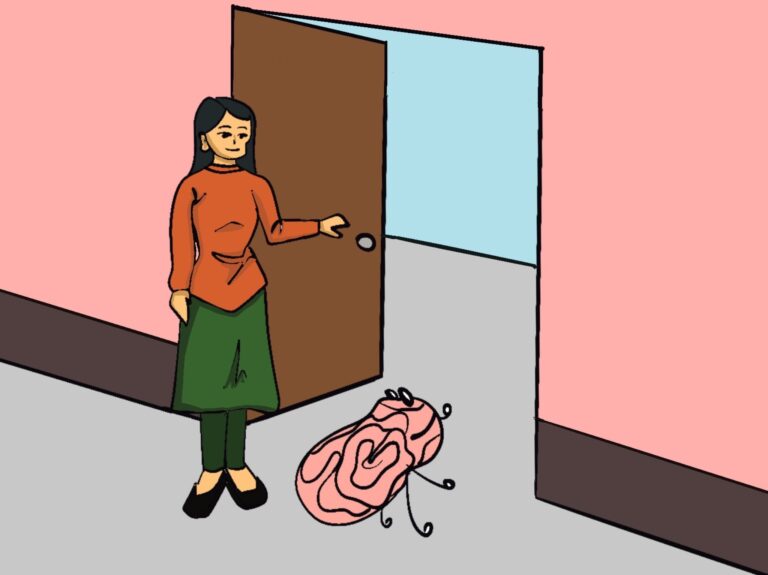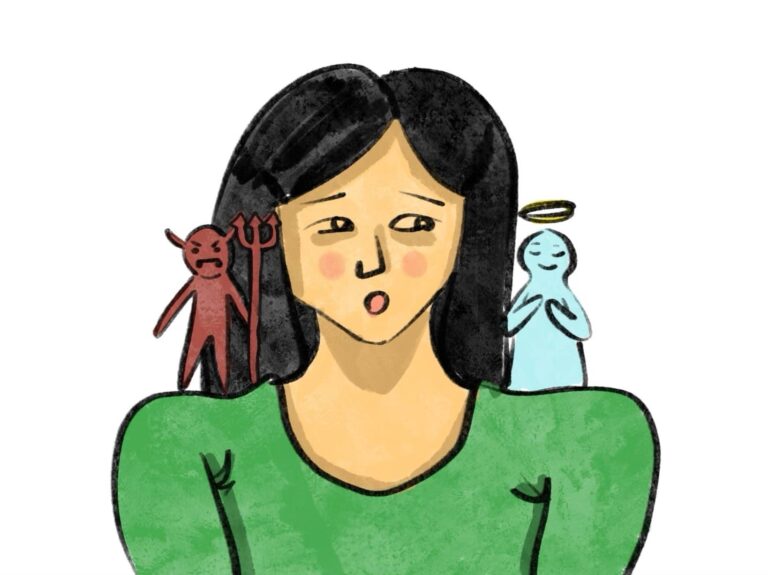How a dead buffalo made me go vegan

Namrata is a freelance writer and blogger who is passionate about all things related to animals, veganism, and feminism.
One day in October 2014, I was scrolling through my Facebook feed when a particular image caught my eye. A big, dead buffalo was lying sprawled on a wet floor, her stomach bloated. Her lifeless face was turned towards me: her unseeing eyes were frozen open in death, and a white frothy liquid dribbled from her open mouth. The image was disturbing and the accompanying caption, more so: “She died because you consume milk, curd, cheese, and butter.” I was shocked to read it.
Though I was raised as a non-vegetarian, I had stopped eating meat a few years ago because I didn’t want animals to be killed just to appease my taste buds. I thought I was doing my bit for the animals by being a vegetarian until I saw this post. I had no idea how my consuming dairy products could have caused the buffalo’s death!
“How?” I commented on the post, and the original poster replied, telling me about all the atrocities that take place in the dairy industry. She asked me about my food habits, and when I told her I was a vegetarian, she advised me to go vegan, and I did.
As of today, I have been vegan for six years, and the only regret is, why didn’t I choose this lifestyle sooner! While I went vegan for ethical reasons, I later learned that going vegan is good for the environment as well. My health has also improved since going vegan, and I have more energy than before.
What is Veganism?
According to the Vegan Society, “Veganism is a way of living which seeks to exclude, as far as is possible and practicable, all forms of exploitation of, and cruelty to, animals for food, clothing or any other purpose.” Animal agriculture is the largest cause of animal abuse, and this is the reason why most of the discussion on veganism revolves around food. However, veganism is not a diet–it’s a moral philosophy.
The easiest way to stop contributing to animal abuse is to adopt a conscious vegan lifestyle. Consuming meat and dairy products is also harmful to the environment as it causes enormous amounts of pollution and is a major driver of climate change.
Why is the Consumption of Meat Unethical?
Whether or not it’s ethical to eat animals is one of the prominent topics in food ethics. The food industry is the biggest exploiter of animals and is responsible for the mass suffering and deaths of tens of billions of animals worldwide. Raising and slaughtering animals solely to enjoy the taste of their flesh is morally wrong and unjustifiable. Animals can feel pain just like humans, and they value their lives just like we do.
In addition to contributing to animal suffering, the production of meat also has a major negative impact on the environment. Raising animals for food uses up massive amounts of land, food, energy, and water and causes land, water, and air pollution. In fact, according to a report by the United Nations (UN), raising animals for food is “one of the top two or three most significant contributors to the most serious environmental problems, at every scale from local to global.”
Vegan Meat Alternatives: Tofu, soya chunks, soya chaap, unripe jackfruit, seitan, and store-bought mock meats are good vegan meat alternatives. You can also replace meat with high-protein vegan ingredients like chickpeas, black beans, or kidney beans in some recipes.
Why is the Dairy Industry Unethical?
Just like humans, cows produce milk for their babies. However, in the dairy industry, the baby calves are separated from the mother cows as soon as they are born so that the milk meant for them can be procured for human consumption. Cows in dairy farms are impregnated using artificial insemination–a cruel and exploitative method–each year to keep them producing milk. This video shows how cows are treated in the dairy industry.
Once the calves are born, they are taken away from their mothers. The male calves are either sold for cheap meat or abandoned, while the female calves are raised to take their mothers’ places in the coming years. A cow’s natural lifespan is around 20-25 years, but in the dairy industry, they are typically killed when they are just 5-6 years old as their milk production begins to decline.
Vegan Dairy Alternatives: Soy milk and coconut milk are easily available and healthy vegan substitutes for dairy milk. You can also prepare many kinds of non-dairy milk like soy, coconut, almond, cashew, and oat milk at home. Check out these easy recipes for more ideas!
Why Shouldn’t we Consume Eggs?
The egg industry, like any other industry that uses animals, is an extremely cruel and unethical one. Egg-laying hens are forced to spend their entire lives in cramped cages where they don’t have enough space to even spread their wings and are made to lay eggs at an unnatural pace. Male chicks are ground alive at birth as they do not produce eggs. The natural lifespan of hens is around 5-10 years. However, in the egg industry, the hens are considered “spent” when they are around two years and are sent for slaughter.
Vegan Egg Alternatives: Depending on the recipe, eggs can be substituted with apple sauce, chickpea flour, tofu, bananas, flax seeds, or commercially available vegan egg substitutes. Here is more on what to use in place of eggs in your favourite recipes.
Why is Honey not Vegan?
We generally don’t think of honey as an animal-derived product. However, we need to keep in mind that honey is prepared by bees as food for themselves and their babies. Honey plays a fundamental role in the bees’ well-being, and each bee produces just a twelfth of a teaspoon of honey in their lifetime. Honey provides vital nutrients to the bees during the winter months when flowers are scarce.
In conventional beekeeping, bees are harmed and killed during the harvesting process. The honey that is meant for them is taken away for human consumption and replaced with a sugar-water solution that is devoid of any nutrients the bees require. Often, the hives are “culled” once the honey has been harvested. Here’s more on the cruelty inflicted on bees in the honey industry.
Vegan Honey Alternatives: You can substitute honey with date syrup, jaggery syrup, coconut nectar, or sugar syrup in recipes, or try these vegan honey recipes to make your own at home!
Non-food aspects of Veganism
Veganism is not just about food; it is about avoiding the exploitation of animals for any purpose. Stop supporting circuses, zoos, and aquariums where animals are exploited for entertainment. Choose to buy toiletries and cosmetics from certified vegan companies. Avoid using garments and accessories made of leather, silk, wool, ivory, or pearls.
What do Vegans Eat?
A vegan diet can be as varied as you choose! The only things vegans avoid consuming are meat, eggs, dairy products, honey, and ingredients like gelatin that are animal-derived. As a vegan, you can eat a healthy, varied diet that includes fruits, vegetables, lentils, grains, beans, nuts, and seeds. While pulses, nuts, and seeds are unimpeachable sources of protein, vegan items like sesame seeds, cabbage, and kale are high in calcium. Dried fruits, nuts, and seeds are rich in iron. Be sure to eat a lot of fresh fruits and vegetables to get an adequate dosage of vitamins. Check out these resources on how to plan a balanced vegan diet that provides you with the nourishment you need.
Health Benefits of a Vegan Diet
According to Marco Springmann, senior researcher of environmental sustainability and public health at the University of Oxford, a balanced vegan diet is one of the healthiest diets. He advises eating a diet that has plenty of fruits and vegetables in a variety of colours, nuts, seeds (chia, flax, sunflower, hemp), whole grains, lentils, and beans. While whole-food vegan diets are generally higher in certain nutrients, vegans need to monitor their B12 levels and supplement as required. Here are a few scientifically-proven benefits of balanced vegan diets:
- A well-planned vegan diet can lower the chances of getting certain types of cancer, such as cancers of the colon, prostate, and breast.
- Vegan diets tend to provide more fibre and antioxidants and are richer in potassium, magnesium, folate, and vitamins A, C, and E.
- Going vegan can help you lose excess weight.
- A vegan diet may reduce the risk of developing type 2 diabetes.
- A vegan diet may lower the risk of heart disease.
- Going vegan can help decrease symptoms of osteoarthritis and rheumatoid arthritis.
Useful Resources
Going vegan is the easiest step you can take to reduce your suffering footprint while also helping the environment and improving your health. There are plenty of resources available online to help you with transitioning. Choosing to refrain from animal-derived products in your food and lifestyle is the best step you can take as an individual to live a gentler and more sustainable life!
Image Credit: Wiki Commons


